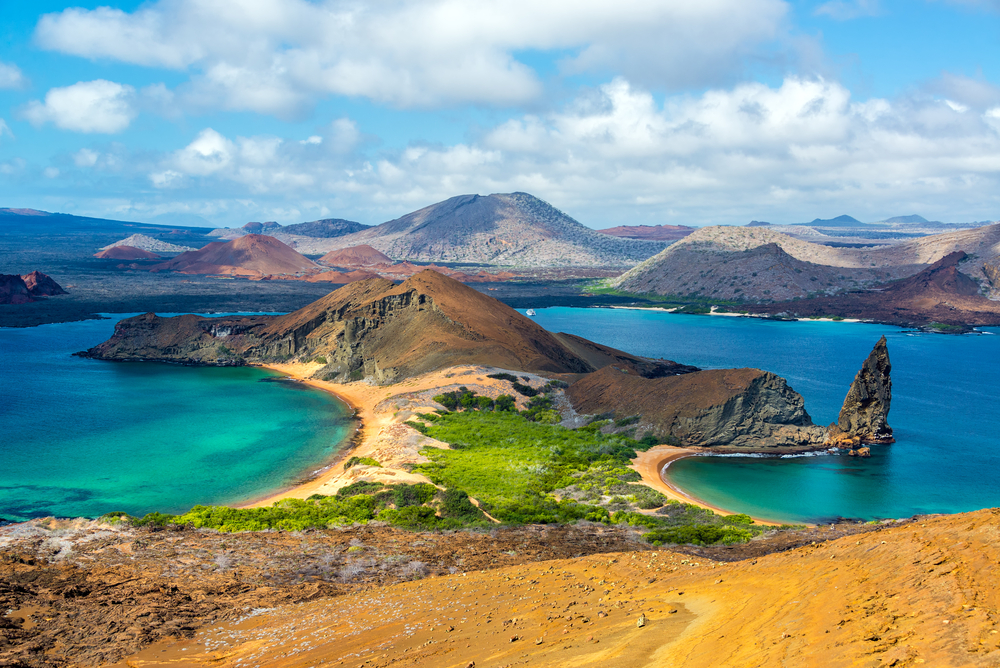Situated off the coast of Ecuador in the Pacific Ocean lies the archipelago of the Galapagos, a place of profound natural importance. These remote volcanic isles are celebrated for their rich biodiversity, exotic species found nowhere else on Earth, and pivotal role in shaping evolutionary theory. Referred to as “Darwin’s dynamic ecosystem,” the Galapagos archipelago offers an enthralling window into the symbiotic relationships of living organisms and the evolutionary forces molding our world. Join us as we unveil the wonders of the Galapagos Islands and delve into the enduring impact of Charles Darwin’s revolutionary scientific contributions.

Peerless Biodiversity:
An astonishing diversity of flora and fauna call the Galapagos home, thanks to the islands’ seclusion and diverse landscapes. These islands boast a veritable gallery of nature’s masterpieces, including the majestic Galapagos giant tortoises and the only seagoing lizards on Earth, the marine iguanas. The remarkable blue-footed boobies and otherworldly flightless cormorants also contribute to the archipelago’s rich tapestry of life.
Spark for Darwin’s Evolutionary Insight:
Integral to the birth of Darwin’s evolutionary theory, the Galapagos served as a catalyst for his ideas during his 1835 expedition aboard the HMS Beagle. His observations and collections of unique island species led him to a fundamental realization about the nature of natural selection and the adaptation of organisms to varied environments across time.
Living Demonstrations of Evolution:
Witnessing evolution firsthand is possible in the Galapagos. The islands’ distinctive habitats have bred diverse adaptations and species divergence over millennia. Observers can see Darwin’s theories exemplified by finch populations, where varying beak designs reflect their specific dietary niches.
Extraordinary Contacts with Wildlife:
Trekking through the Galapagos allows for unparalleled interactions with its native creatures. Snorkelers play with amicable sea lions, share the waters with ancient marine turtles, and gaze upon the elaborate hues of coral reef fish. Free-wandering giant tortoises and the mesmerizing mating rituals of blue-footed boobies enrich the experience, deepening one’s reverence for life’s spectrum.
Safeguarding a Unique Heritage:
The extraordinary value of the Galapagos has spurred global efforts to safeguard its ecosystems. As a protected UNESCO World Heritage site and a national park, the islands are supported by rigorous policies that promote sustainable visitation and the preservation of nature’s delicate equilibrium. Travelers are invited to practice mindful eco-tourism to diminish their environmental footprint.
Discovery and Outdoor Pursuits:
Proffering a playground for nature enthusiasts, the Galapagos presents countless avenues for excitement and investigation. Whether snorkeling, diving, paddling, or hiking, adventurers can engage with the isles’ natural splendor. Educational tours and explorations grant insights into the geological narrative, ecological importance, as well as current studies and preservation initiatives.
Hub for Eco-Education and Study:
As a hub for eco-education and investigation, the Galapagos are at the heart of ongoing research into unique island ecosystems and the threats they encounter. Various groups and academic establishments are dedicated to understanding and preserving this unique environment. Their work informs global knowledge of biodiversity and formulates strategies for its continued existence.
To conclude, the Galapagos Islands stand as a vibrant monument to earth’s evolutionary marvels and adaptability. Serving as a source of inspiration for scientists, conservationists, and globetrotters alike, their exploration fosters a more profound appreciation for the web of life and the fragile balance within ecosystems. A voyage to the Galapagos is an enlightening and wondrous journey that nourishes our wonder and respect for the diversity and splendor of our planet’s living tapestry, urging us to cherish and protect it for the enrichment of future generations.







